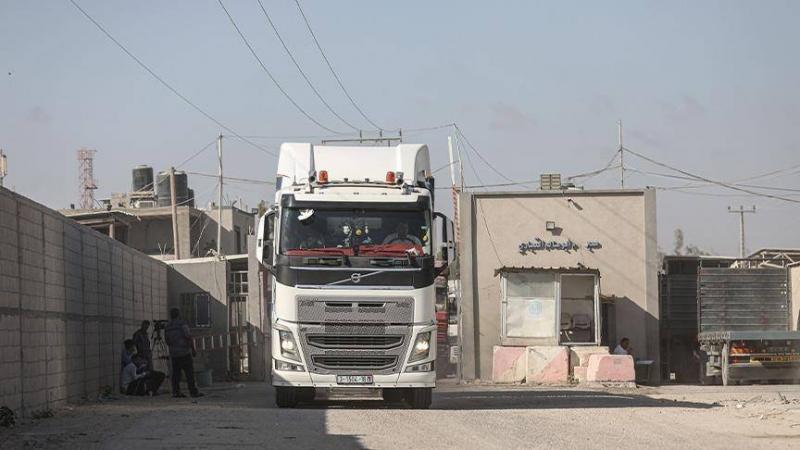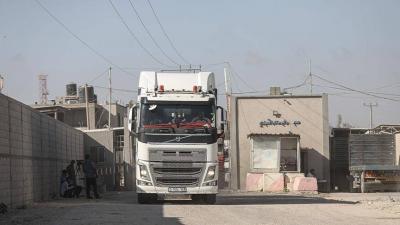Officials stated that the Kerem Shalom crossing between Israel and the Gaza Strip was opened today, Sunday, to aid trucks for the first time since the outbreak of war, in a move aimed at increasing shipments of food and medicine reaching the region. The crossing had been closed following the October 7 attack carried out by Hamas, and aid was only permitted through the Rafah crossing on the border with Egypt, which Israel claims can only facilitate 100 trucks per day.
Two sources from the Egyptian Red Crescent informed Reuters that trucks began entering today through the Kerem Shalom crossing en route to Gaza, with one source indicating that the number of trucks is 79. The Kerem Shalom crossing, located on the border between Egypt, Israel, and Gaza, represents one of the main points of transit for goods going to and departing from the Gaza Strip, allowing trucks to cross much faster than the Rafah crossing, which is primarily designated for passengers and is located a few kilometers away.
Israel approved the entry of aid last week. The Israeli Coordinator of Government Activities in the Territories (COGAT), a branch of the military that coordinates humanitarian assistance with Palestinian territories, stated in a release, "Starting today, UN aid trucks will be subject to security checks and transported directly to Gaza via Kerem Shalom, in accordance with our agreement with the United States."
The Israeli Prime Minister's office previously mentioned that this would allow Israel to meet its obligations to permit the entry of 200 aid trucks daily, as stipulated in the prisoner exchange agreement reached and implemented last month. When asked whether the aid had crossed into Gaza, an Israeli official responded affirmatively.
Israel had indeed agreed to allow inspections of trucks at the Kerem Shalom crossing, but previously the trucks had to return to Rafah to cross into Gaza from Egypt. Relief organizations had been demanding direct entry for the trucks. Colonel Elad Goren, head of the civilian department at COGAT, told Reuters that the aid might not reach the residents of Gaza. He added that relief agencies in Gaza had not enhanced their capabilities to distribute aid to meet the increased demand due to the influx of Gazans to the south of the region based on Israeli advice.
Goren stated, "If the UN does not have the capacity to take the aid and distribute it, it does not matter how many crossings we open. They cannot rely on the same mechanism they had before the war." He further commented, "We have adjusted ourselves. Unfortunately, the UN has not." No comment was available from the relevant UN agencies.




